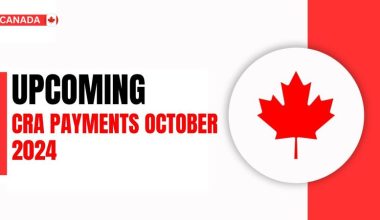Canada’s Changing Immigration Landscape for International Students: Navigating the Path to Permanent Residency
Canada has long been a top destination for international students, drawn by the promise of a clear path to permanent residency (PR) through its immigration programs. However, recent policy shifts have created uncertainty for tens of thousands of these students, many of whom have invested years into building their lives in Canada.
As of 2023, Canada issued Post-Graduation Work Permits (PGWPs) to 396,235 international students, nearly three times the number from 2018. These graduates play a critical role in the Canadian labor force, filling positions across various sectors. Despite their contributions, many now face an unclear future due to recent changes in immigration policies.
International Students and the Path to Permanent Residency: A Shifting Landscape
For years, international students came to Canada with the expectation that completing their education and gaining Canadian work experience through the PGWP would serve as a stepping stone to permanent residency. This pathway appeared straightforward, as Canadian work experience is a key factor in immigration programs like Express Entry and provincial nomination programs.
Apply Also: 10 Highest Paying Jobs In Ontario That Are In-Demand
However, the landscape has shifted dramatically between 2021 and 2023. Although Canada granted PR to 90,000 temporary workers and PGWP holders during the pandemic, these measures were temporary. Since then, the Comprehensive Ranking System (CRS) criteria for Express Entry have shifted, prioritizing candidates in fields like healthcare, skilled trades, and STEM over those with Canadian education and work experience alone.
This change has left many international graduates, whose PGWPs are set to expire, in a precarious situation. Experts estimate that between 70,000 and 130,000 PGWP holders will see their permits expire in 2024 and 2025, with limited opportunities to extend their visas or secure permanent residency. This is happening as Canada sets a target of 305,000 economic immigrants for 2024, aiming to fill key labor shortages with skilled workers—yet many temporary residents, including international graduates, no longer fit into the criteria.
The Human Toll of Immigration Policy Changes
The impact of these changes is deeply personal for many international graduates. With PGWPs expiring and limited pathways to PR, individuals who have invested in Canadian education, paid taxes, and contributed to the economy now face an uncertain future.
For example, Sarabjit Singh, a mechanical engineer from India who came to Canada in 2020, pursued a business management diploma, hoping it would lead to PR. However, he has found himself stuck after the pause in Canadian Experience Class (CEC) draws and his work permit expiring in September. Despite his efforts, he feels abandoned by a system that once promised him a future in Canada.
Similarly, Mehakdeep Singh, who trained as an HVAC technician, has struggled with the shifting immigration policies. After working in various roles to qualify for a Provincial Nominee Program (PNP), his PGWP expired in July, and he now holds a visitor visa with no clear path forward.
A Call for Fair Pathways to Permanent Residency
As frustration grows, many international graduates are demanding policy reform. Groups like the Naujawan Support Network have taken to protest, calling for visa extensions and a fair pathway to PR for those who have been living, studying, and working in Canada.
Labor lawyer Parmbir Gill points out that the government once promoted education in Canada as a means to permanent residency, with slogans like “Study. Explore. Work. Stay.” Now, with shifting policies, many graduates feel misled.
The situation has also led to increased exploitation, with some recruiters offering fraudulent Labour Market Impact Assessments (LMIAs) to desperate graduates at exorbitant prices, further compounding the challenges these individuals face.
The Need for Immediate Solutions
Immigration experts warn that Canada risks losing a skilled and educated workforce if policy reforms are not implemented soon. The country’s decision to cap international student admissions and restrict PGWPs for certain institutions has done little to address the pressing issue of expiring work permits.
Vasanthi Venkatesh, a law professor specializing in immigration at the University of Windsor, argues that the government’s actions are contradictory. While international students were welcomed during labor shortages, they are now being pushed out. “The right thing to do is grant them PR status,” she says, noting that Canada’s long-standing reputation as an immigrant-friendly country is at stake.
Conclusion: Time for Policy Reform
Canada’s international student immigration program has been an essential part of its labor force strategy for years. However, recent policy changes have disrupted this pathway, leaving many graduates in limbo. Without clear and transparent pathways to permanent residency, the country risks losing the very individuals it has invested in and relied upon.
As Canada moves forward with its immigration targets, it must balance the need for skilled workers with its responsibility to those who have already contributed to its economy. Clear, fair, and accessible immigration policies are essential to maintaining Canada’s global reputation and ensuring that those who choose to build their lives here can do so with confidence.








